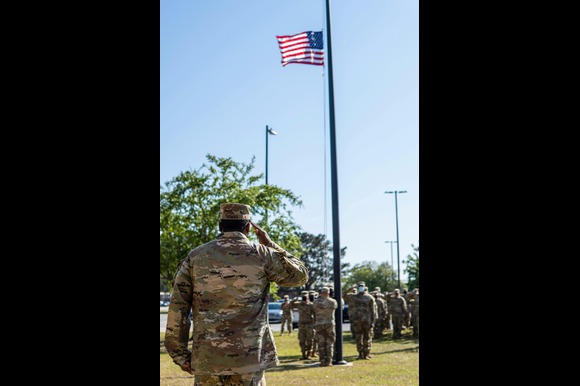A federal appeals court has temporarily blocked a lower court ruling that ordered the Trump administration to return command of California’s National Guard to the state government. The stay came just hours after U.S. District Judge Charles Breyer declared the federal deployment of the troops to Los Angeles unlawful.
President Trump had deployed the National Guard — which is typically under the authority of state governors — to Los Angeles in response to protests over his immigration policies. He claimed the deployment was necessary to prevent the city from “burning down” amid what he characterized as dangerous unrest.
The move, however, was met with sharp criticism from California Governor Gavin Newsom and several local leaders, who labeled the federal intervention an unnecessary provocation. Despite the backlash, Trump’s administration pressed ahead, sending a total of 4,000 National Guard troops and 700 U.S. Marines to Los Angeles. Some of the deployed personnel were reportedly authorized to detain individuals until police could formally arrest them.
In his ruling, Judge Breyer wrote, “The question presented by California’s request is whether the President complied with the law set by Congress concerning the deployment of a state’s National Guard. He did not. His actions were illegal… He must therefore return control of the California National Guard to the Governor of the State of California forthwith.”
However, Breyer stayed his own order until Friday afternoon to allow time for the Trump administration to appeal — a move the Justice Department undertook immediately. The appeals court’s decision to temporarily block the order allows National Guard troops to remain in Los Angeles while the case proceeds.
Governor Newsom responded via social media on Thursday, writing, “The court just confirmed what we all know — the military belongs on the battlefield, not on our city streets.”
The Trump administration defended its use of federal authority, asserting that the National Guard presence was necessary to support Immigration and Customs Enforcement (ICE) operations and to maintain public order. Officials said the protests, which have resulted in over 300 arrests and the closure of major freeways, justified invoking a legal provision that allows the President to federalize the National Guard during instances of “rebellion.”
At a federal court hearing, a Justice Department attorney argued that Governor Newsom’s consent was not required under these circumstances. “Governor Newsom was fully aware of this order… he objected to it,” said Attorney Brett Shumate. “There is one commander-in-chief of the U.S. armed forces.”
Judge Breyer, who is the younger brother of retired Supreme Court Justice Stephen Breyer, disagreed sharply. “No,” he said. “The President isn’t the commander-in-chief of the National Guard — at least not under normal circumstances.” He acknowledged that under specific legal conditions, the President could assume such authority, but emphasized the limitations imposed by the U.S. Constitution.
Breyer, wearing a light blue bowtie, referred to the Constitution repeatedly during the hearing, even holding up a pocket-sized copy of it at one point. “We’re talking about the President exercising his authority. And the President is, of course, limited in his authority. That’s the difference between a constitutional government and King George.”
Secretary of Defense Pete Hegseth, speaking earlier at a House Armed Services Committee hearing, declined to confirm whether he would enforce Judge Breyer’s ruling, stating, “What I can say is we should not have local judges determining foreign policy or national security policy for the country.” Hegseth did, however, say he would comply with any ruling issued by the Supreme Court.
In its lawsuit, California challenged the legal grounds of the deployment, arguing that the protests — though disruptive — did not constitute a rebellion or insurrection under federal law. “At no point in the past three days has there been a rebellion or an insurrection. Nor have these protests risen to the level of protests or riots that Los Angeles and other major cities have seen at points in the past, including in recent years,” the lawsuit stated.
The appeals court is expected to hold a hearing on Tuesday to consider the legality of the deployment. Until then, the Trump administration retains control of the National Guard in California — a move many see as testing the limits of federal authority in domestic matters.






